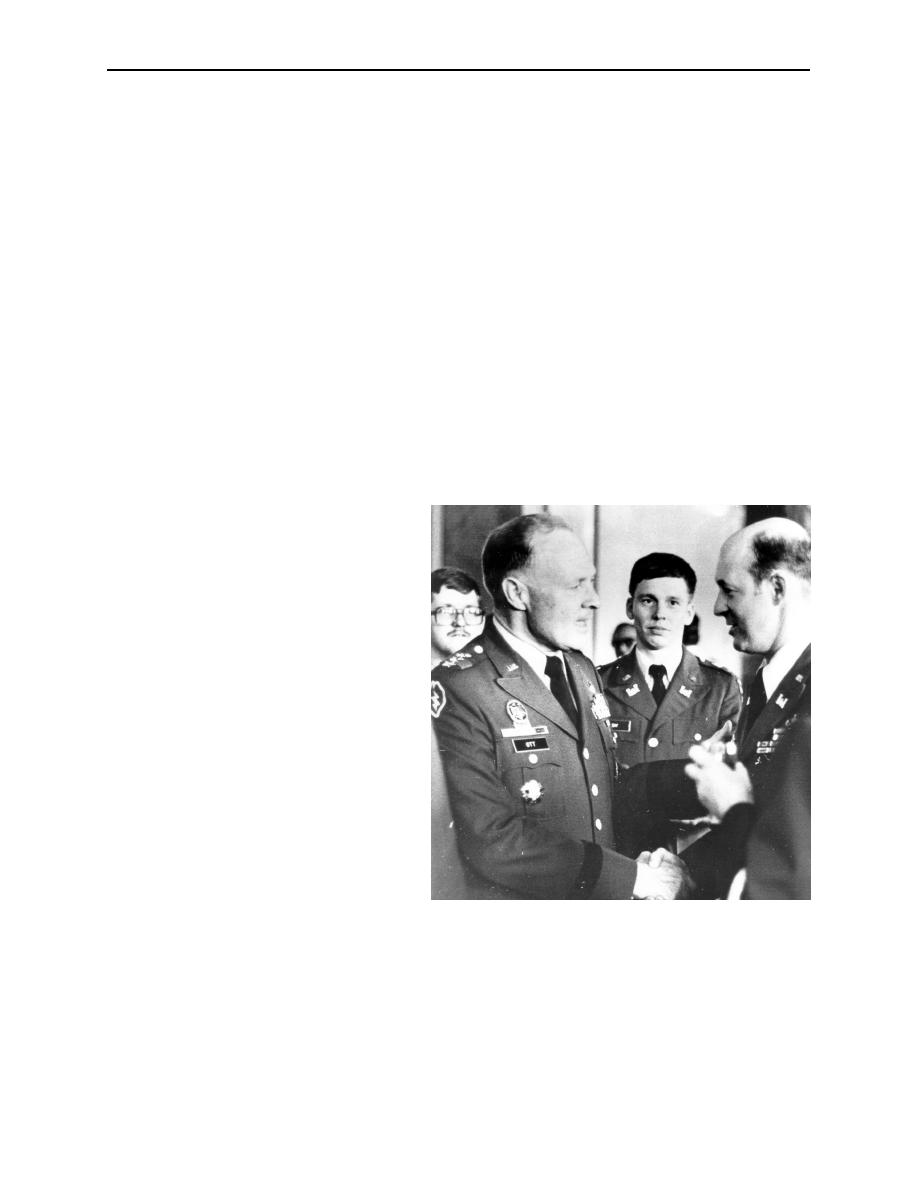
________________________________________________________________________Richard S. Kem
Q:
On the disciplinary side, you just mentioned some examples of families. What sort of
disciplinary legal responsibilities did the community commander have, or was that handled
within the individual units, or did it mostly concern families for the community commander?
A:
Well, the general court martial authority was at the Corps headquarters. We had special court
martial authority then where we were. We were pooling judges by that time and pooled
prosecuting attorneys, and so those all came out of the Corps headquarters. We had one JAG
officer who normally worked all the cases for us. He was always about and had access to
me--we would invite him in to staff meetings and that sort of thing.
So, we had the U.S. Army's court martial system, which wasn't applicable to dependents,
even for capital cases. So, many of those the German authorities would make the arrest and
they would be incarcerated in a German jail. Then the procedures would be through the JAG
folks as to how that was dealt with, and they were advising me, or General Ott, the Corps
commander.
Q:
So, you would possibly get involved in some dependents' legal problems, personal problems
with--
A:
Yes, we were involved with
dependents' legal and personal
problems and with the German
authorities.
Q:
I guess what sort of impresses me
about this is what you started out
talking about--the enormous range
of issues that a community
commander is involved with,
particularly in a foreign country
with a lot of different sorts of
people, not just soldiers in green
suits but kids and wives and
husbands.
A:
Civilians who worked there, the
complete range.
Q:
Any other issues about this
Lieutenant General David Ott (left),
community commander's job you'd
Commander of the VII Corps, and
like to talk about?
Colonel Kem as Kem left his assignment as
A:
No. Can't think of any.
Commander of the 7th Engineer Brigade in
July 1978.
223



 Previous Page
Previous Page
